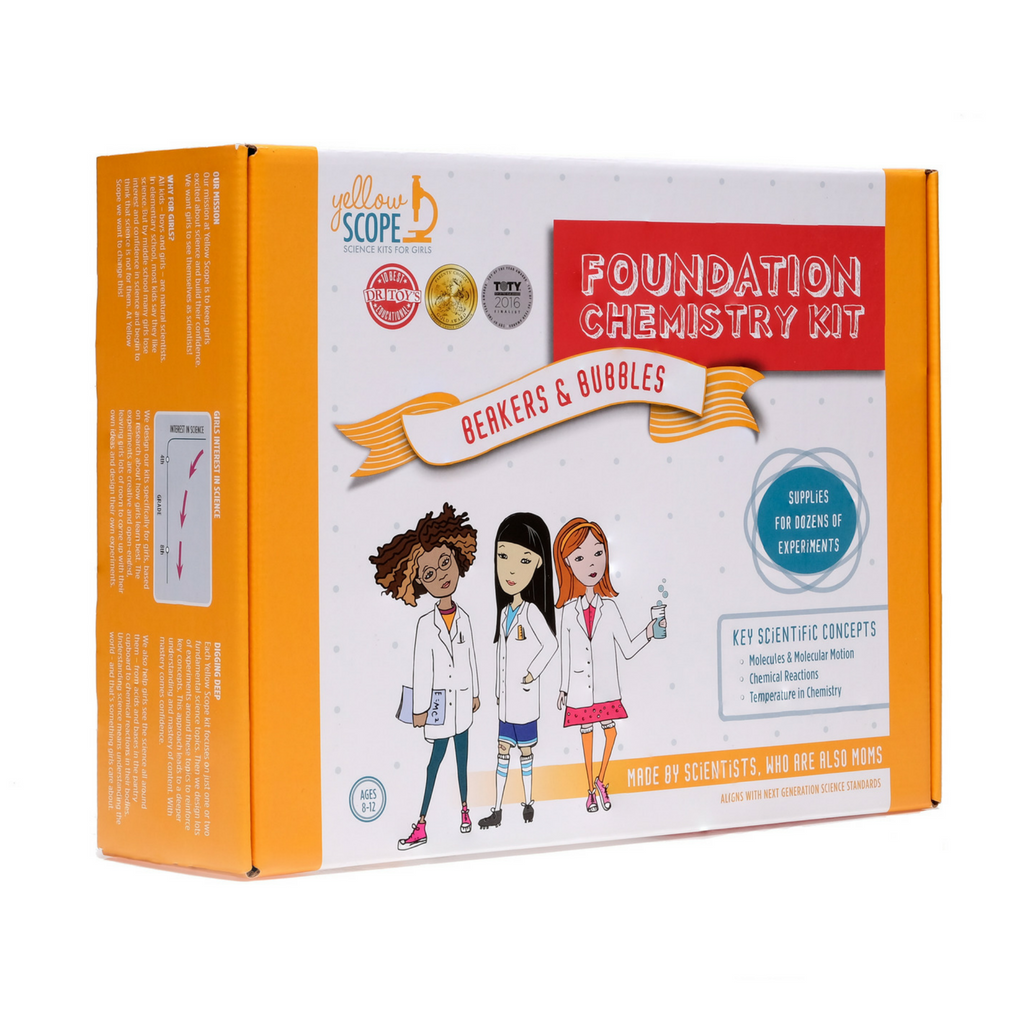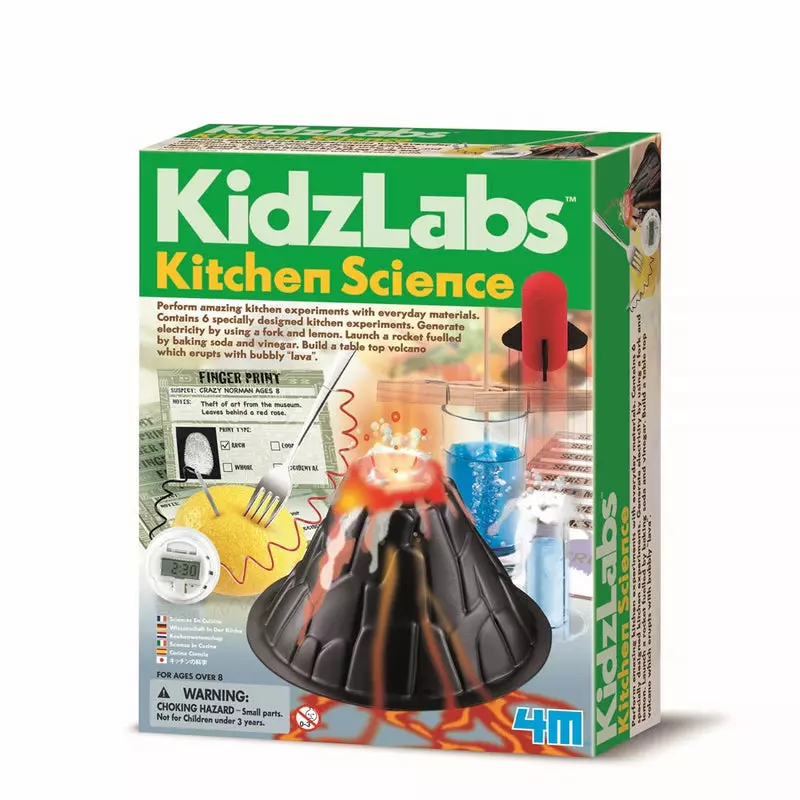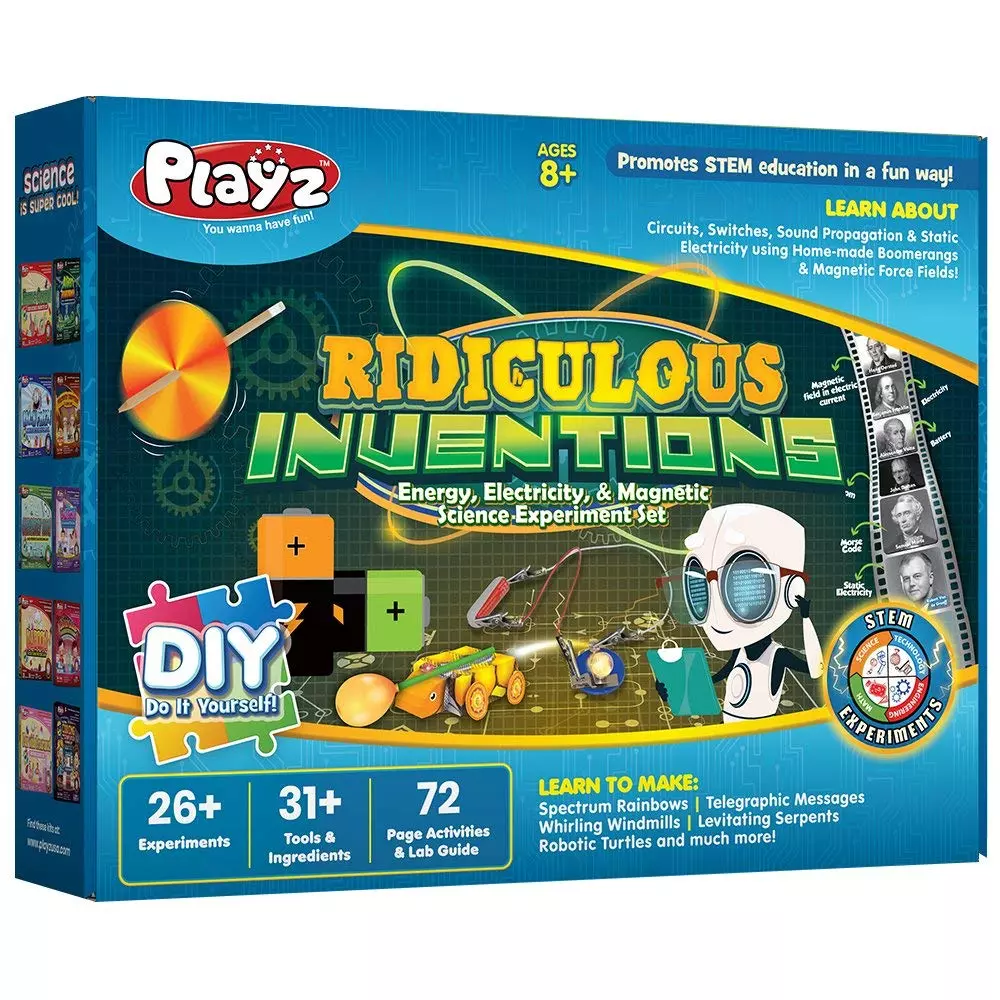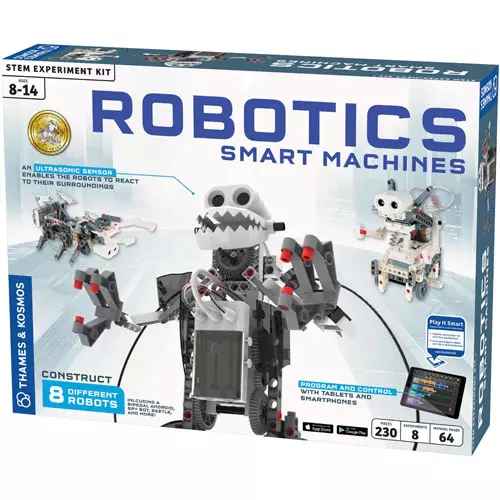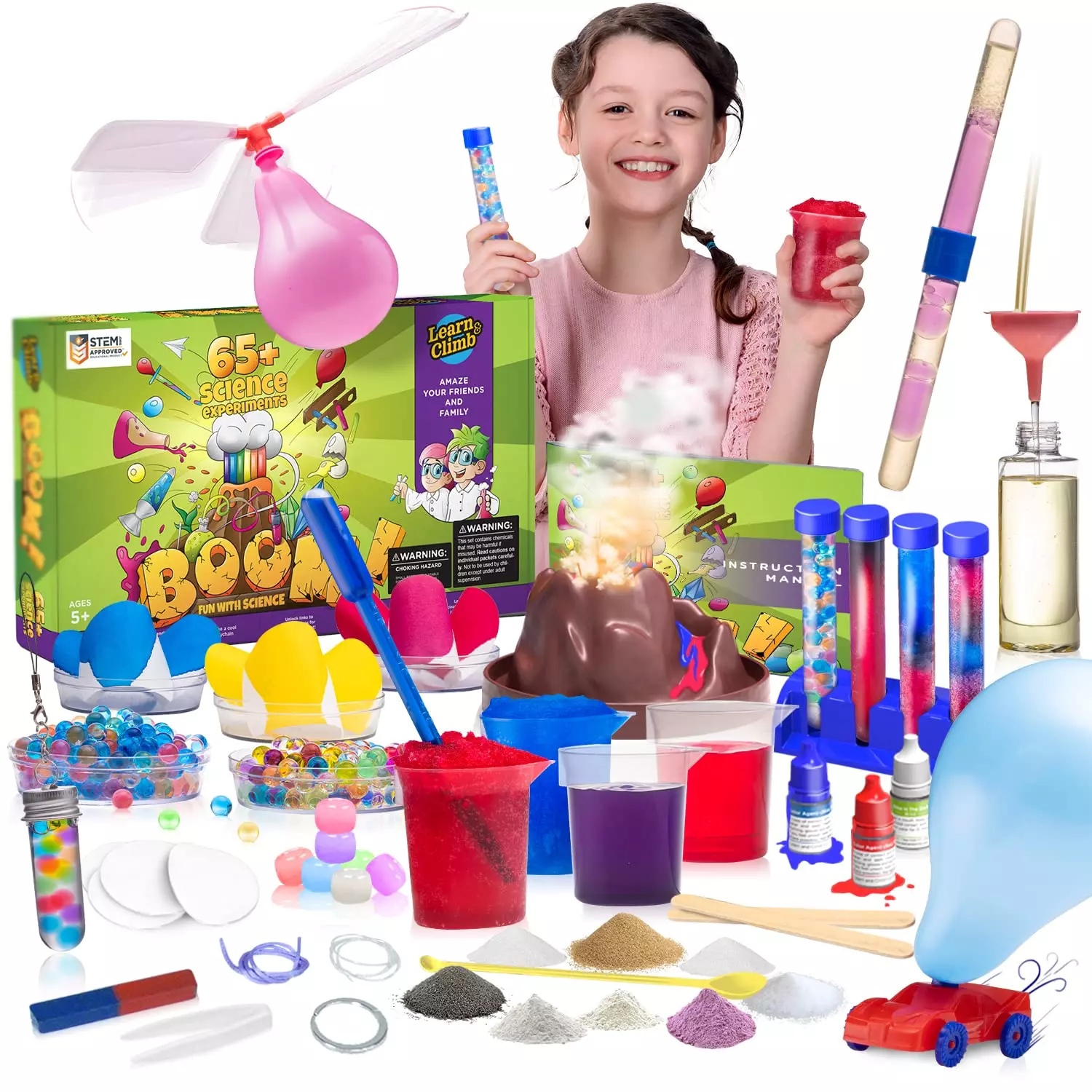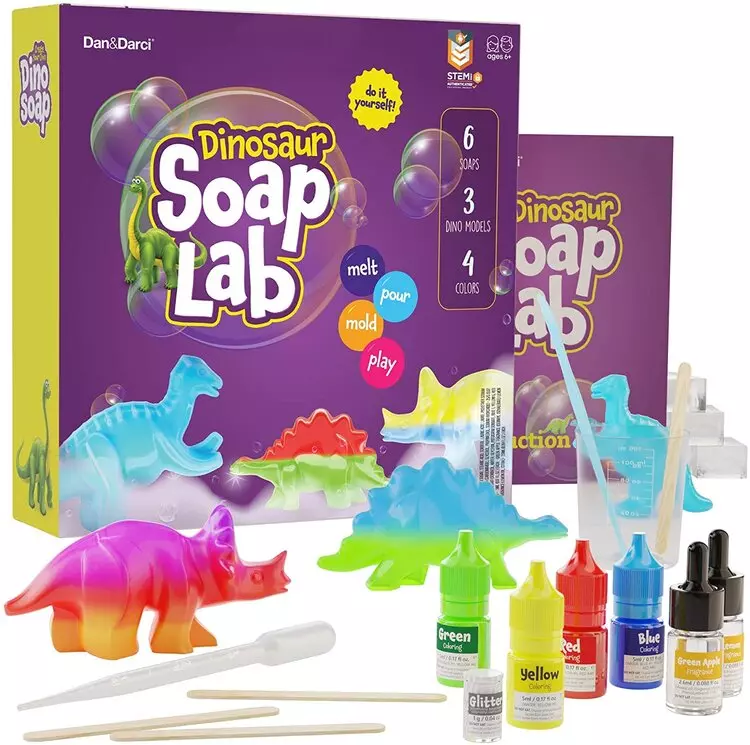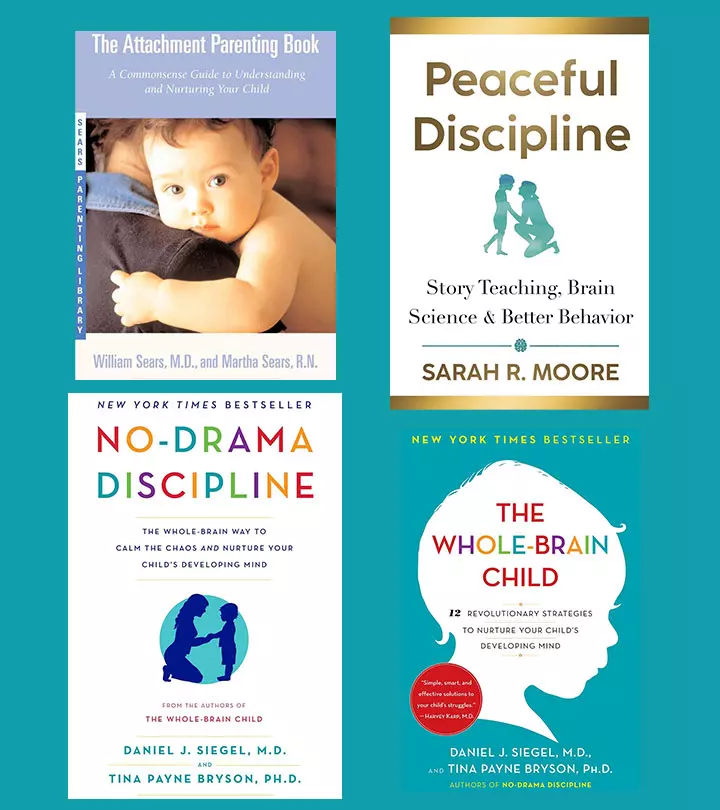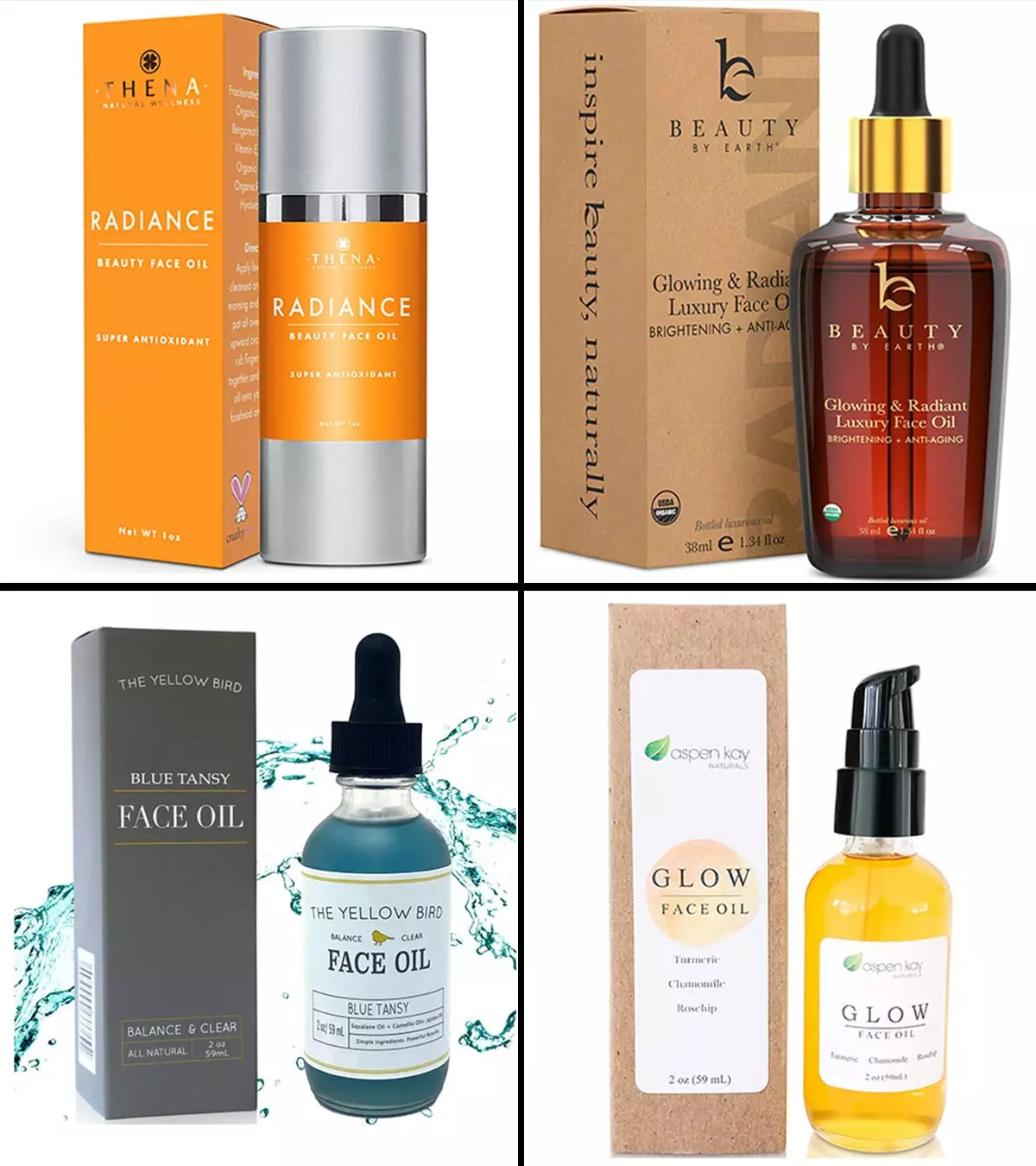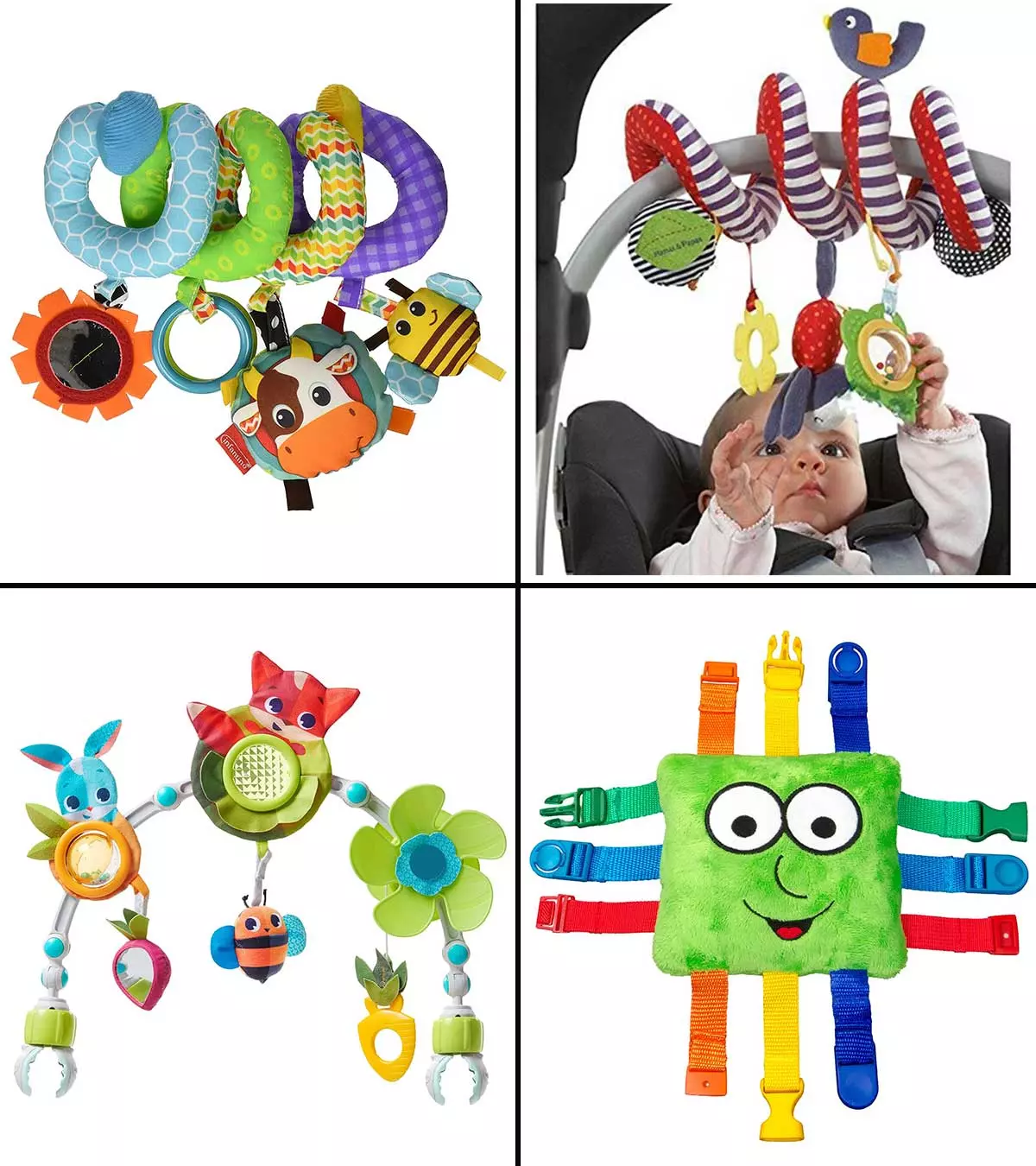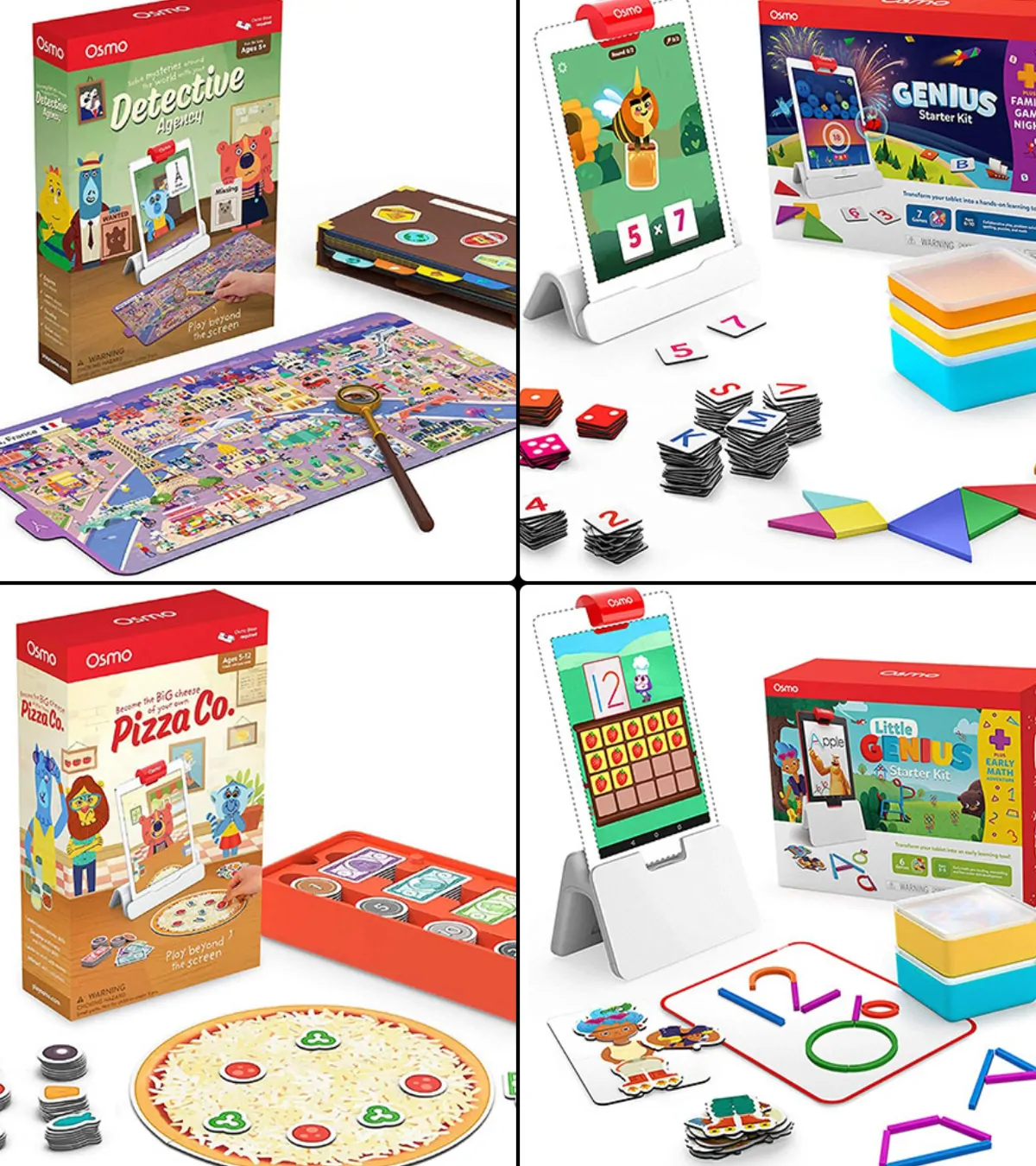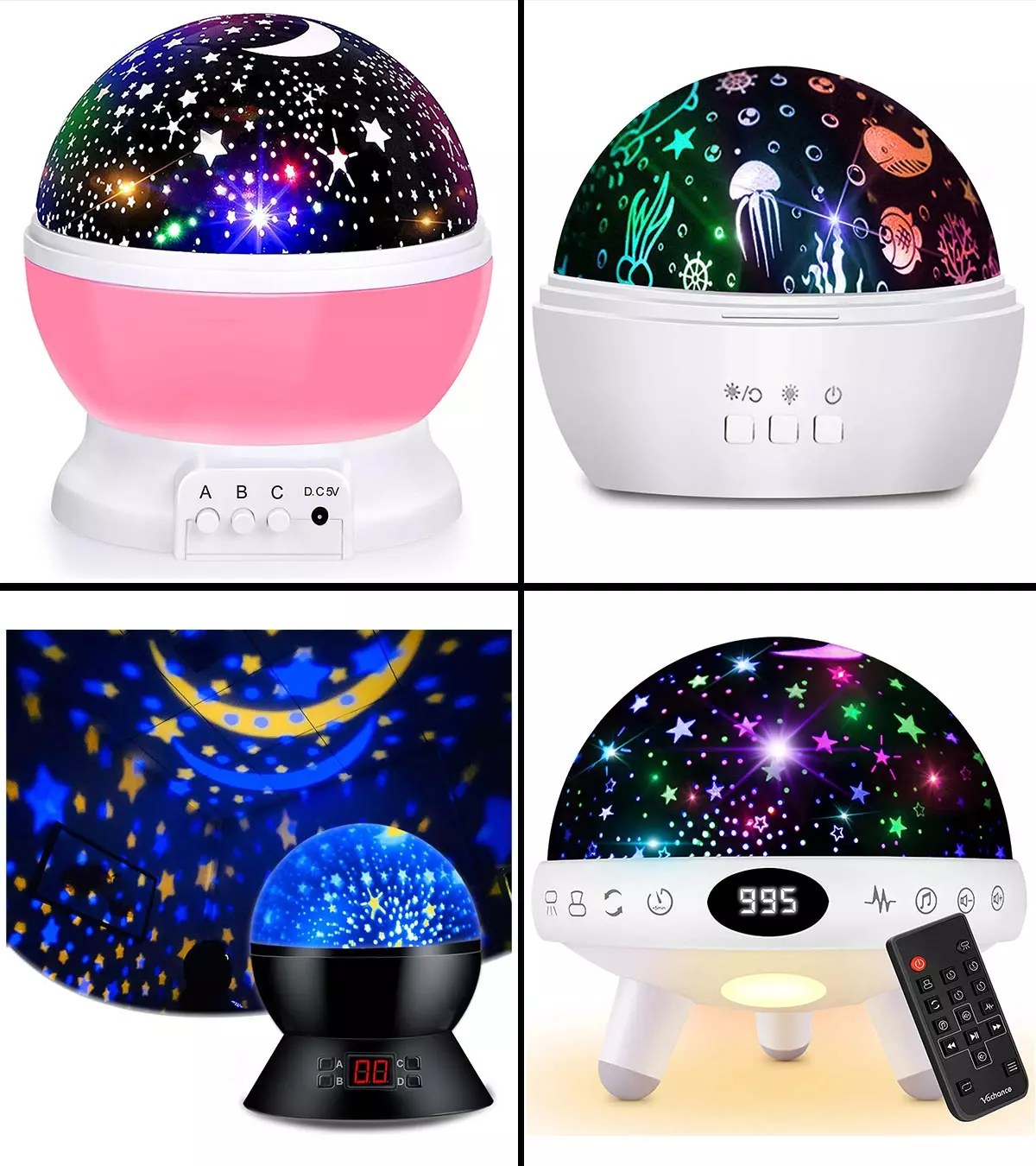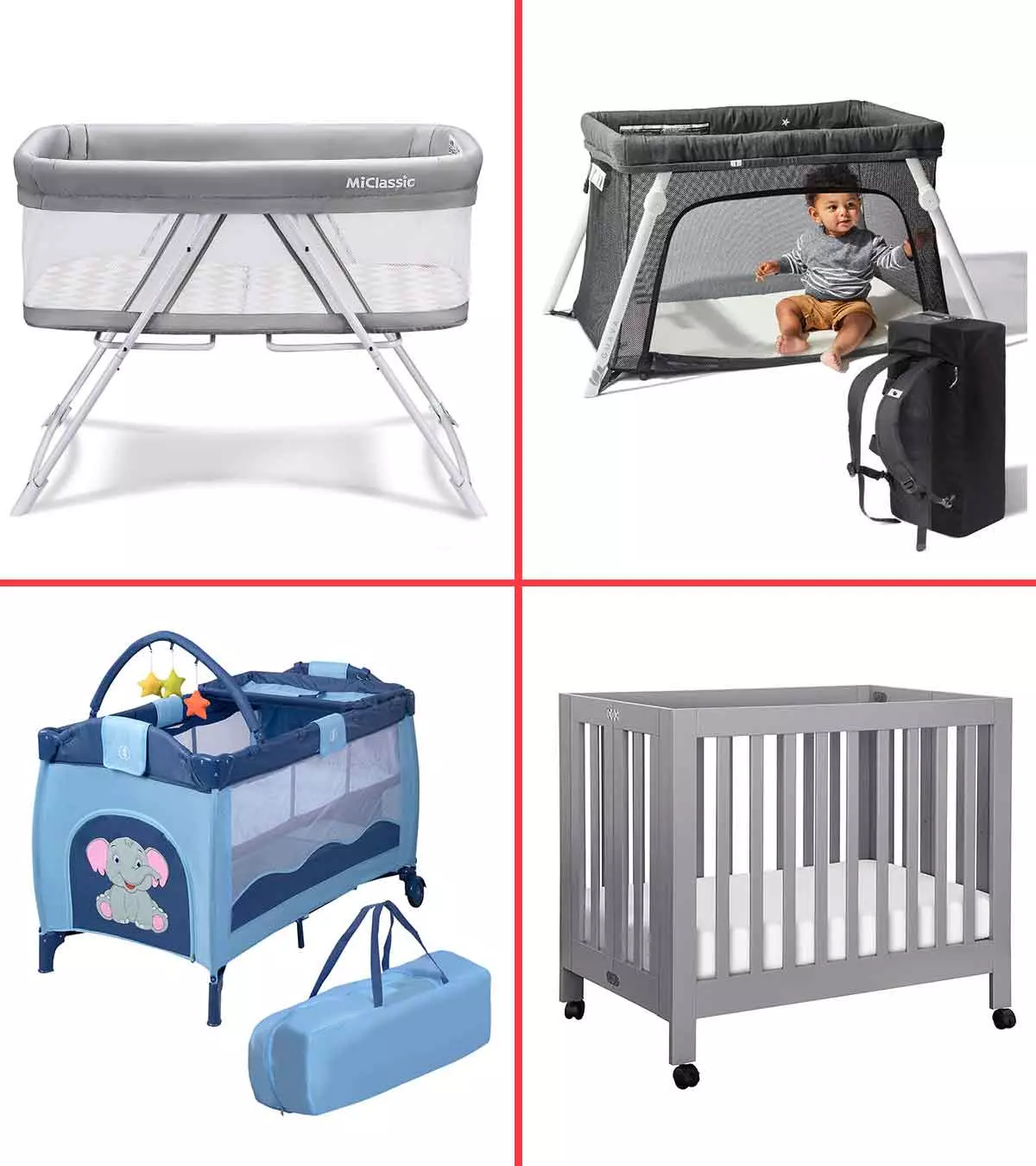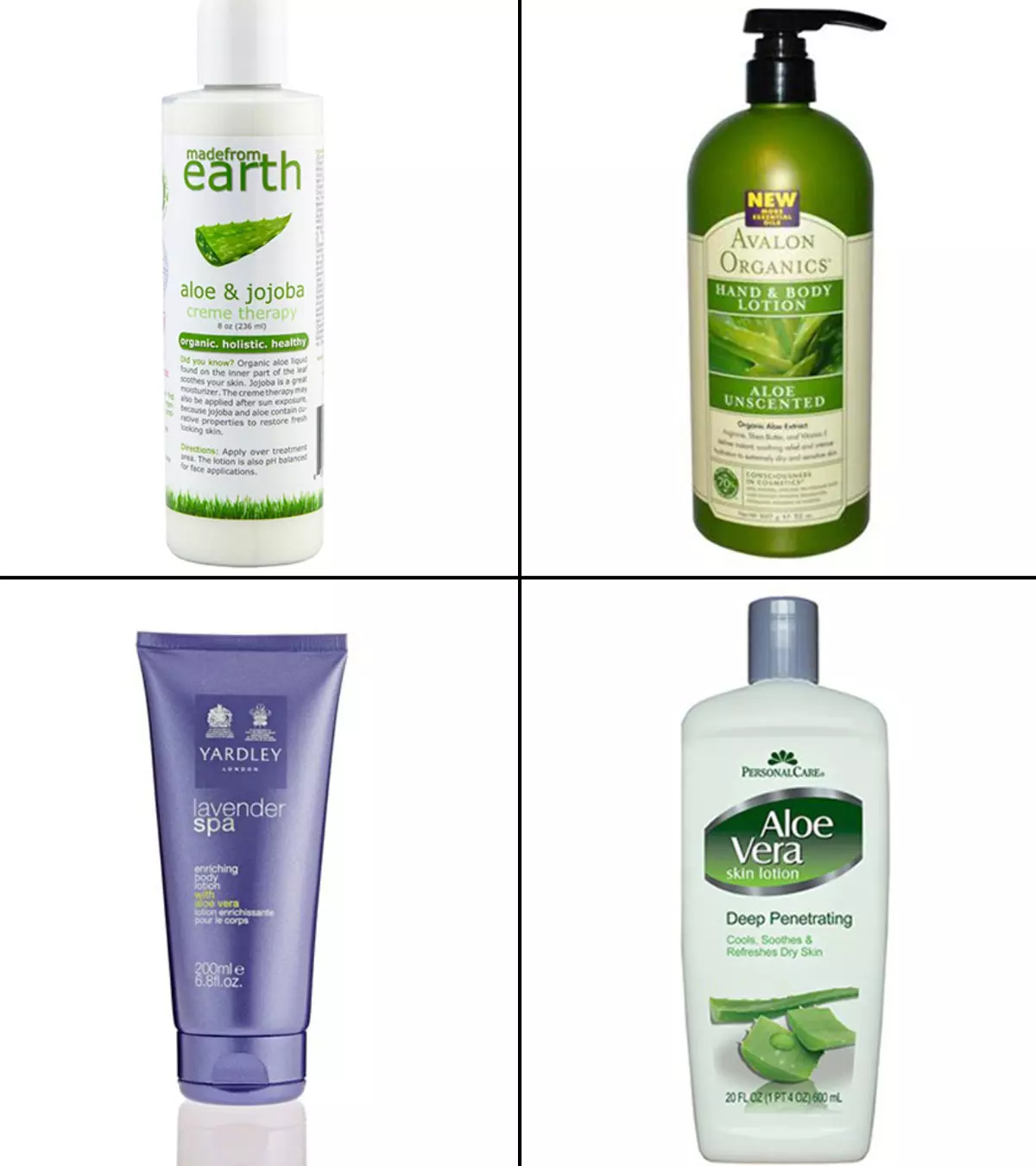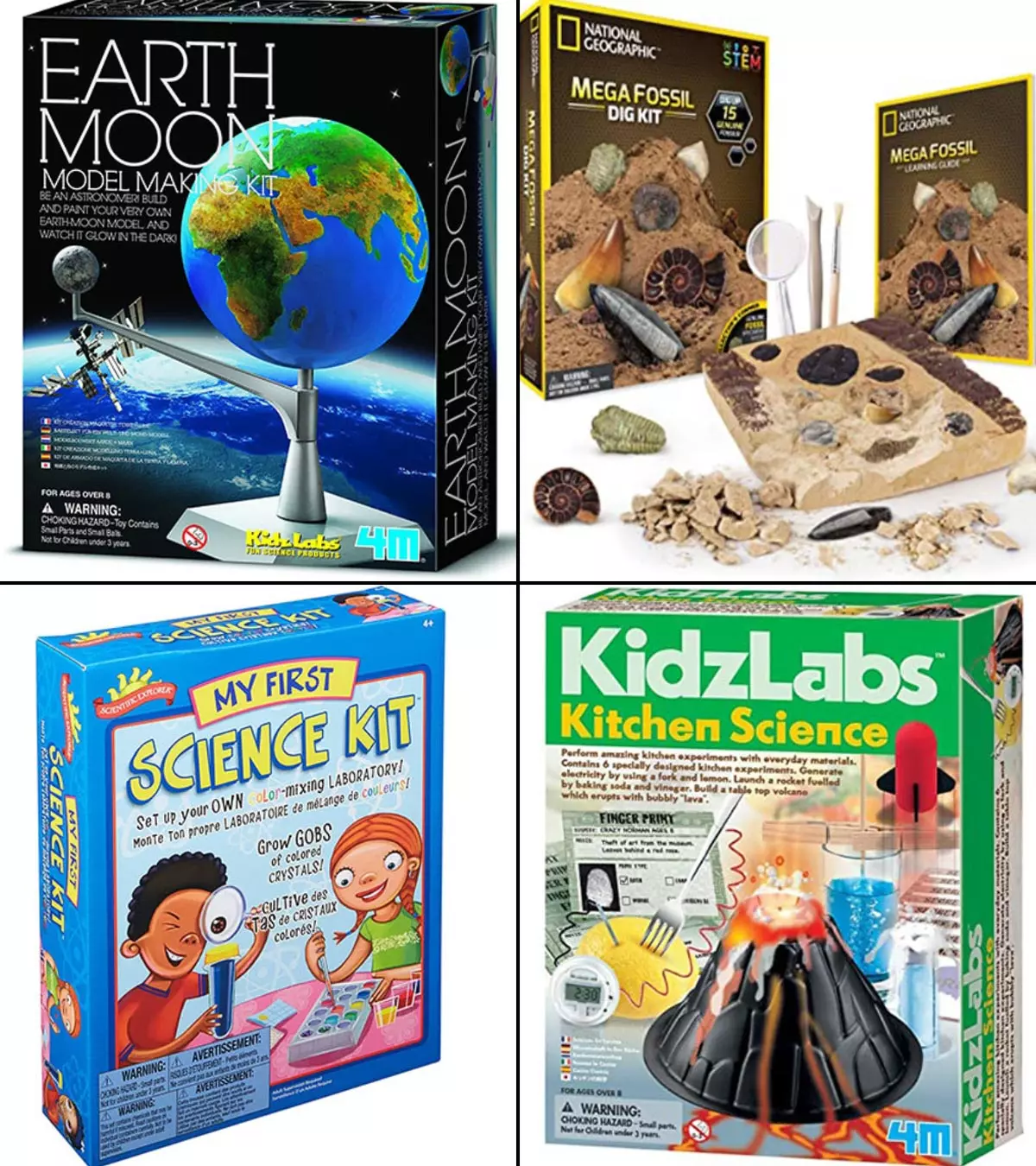
Image: MomJunction Design Team
If your little one loves experimenting or is an avid science enthusiast, you’d love to hear that the markets are filled with some of the best science kits for kids these days. That means you can satiate your child’s learning interest and curiosity by providing them with a skill-building science kit they would love.
The boom in science kits is a result of the STEM learning explosion that has happened over the past few years. Check out our list of some of the best science kits and pick the ones you like for your little scientist.
Top Picks
23 Best Science Kits For Kids
1. Best For Early Age: Alex Toys Scientific Explorer My First Mind Blowing Science

This best-selling science kit is a great way to introduce your kid to STEM (Science, Technology, Engineering, Math) concepts from a young age. It is designed to delight and educate children about science at an early age. Recommended for kids six years and up, this instructional video will give you more insights into this science project kit.
Pros
- Children can learn science basics via chemical reactions
- Comes with toys for open-ended play
- Includes various interesting activities
- Colorful experiments can be performed at home
Cons
- May require various household items for experiments
- May require adult supervision at all times
"It has been an excellent resource for practical science education. The range of experiments, from polymer fun to color-changing reactions, has captivated my children. The simple instructions and red cabbage powder are lovely."
 Point to consider
Point to consider2. Best Hands-On Chemistry Experience: Yellow Scope – Foundation Chemistry Kit
This tried-and-tested chemistry kit for kids is a great way to give your girls a head start on molecular motions and chemical reactions. It is recommended for kids around the age of 8-12. Learn more about this cool product in this video.
Pros
- Includes a 28-page lab notebook to teach about key scientific concepts
- Comes with tools for performing more than 19 fun experiments
- Provides hours of fun
- Comes with top-notch supplies needed for experiments
- Aids learning through STEM and art concepts
Cons
- Experiments may seem like slightly repetitive variations
- Chemicals for experiments may be limited
 Point to consider
Point to consider3. Best For Backyard Adventure: Educational Insights Geo Safari Jr. Explorer Scope
The Geo Safari Jr. Explorer Scope by Educational Insights is perfect for the little Indiana Jones in your house. Designed for children around the ages of three to six, this kit allows them to have their share of adventure in the backyard. This short review video gives you more information about the product.
Pros
- Works as both a microscope and a telescope
- Toy parts are specially designed to suit children’s needs
- 8x microscope magnification and 15x telescope magnification
- Suitable for STEM learning on the go
Cons
- Children may find the toy a bit heavy
- May require more effort to focus and adjust the lens
"My son likes carrying this one during our outdoor trips. It's durable and has a practical neck strap, making it ideal for hands-free play in the woods or in the backyard."
4. Best Educational Plant Experiment: Thames & Kosmos Kids First Botany – Experimental Greenhouse Kit
Perfect for children aged five and up, this experimental greenhouse kit is a great choice for children to get their hands dirty whilst learning about Botany. It is sure to spark the imagination of young minds with its simple yet sophisticated design that will grab the attention of young and older kids.
Pros
- Allows plant and seed experiments
- Features experiments like making an autonomic watering system
- Teaches about plant cells and capillary actions
- Helps discover the role of roots in plant growth
- Comes with 30 experiments along with a 48-page colorful manual
Cons
- May not feature easy-to-follow instructions
- May not be suitable for quick learning
"For my daughter, who loves the planting process and quick sprouting, this kit seemed the best. Though it can cause a bit of a mess indoors, she finds it is quite interesting to witness as the seeds emerge. Moreover, it gives a hands-on experience and fosters her patience and curiosity."
5. Best Imaginative: Creativity for Kids Grow ‘N Glow Terrarium Kit for Kids

Who doesn’t love a glow-in-the-dark terrarium? Recommended for children aged five and above, this nature science kit for kids lets their imagination and creativity run wild by allowing them to create their own tabletop terrarium. Tested by many reviewers, it has all that one needs to build their own version of a stimulating natural environment.
Pros
- Teaches about responsibility and helps nurture skills through activities
- Consists of all the tools required for the activity
- Children can witness two full plant life cycles
- Promotes STEM learning and creative confidence
Cons
- May be prone to accumulating mold
- Seeds may take varying time limits to sprout
"This terrarium kit makes a great indoor gardening project for my daughter. The flourishing flora and additional glow-in-the-dark element have captivated her. Keep an eye on the number of seeds sowed to avoid crowding."
6. Best Magical Experiments: Scientific Explorer Magic Science for Wizards Only

If you’ve got wannabe wizards at home, then grab one of these bad boys, which will help them perform some magical stunts. Recommended for kids aged six and above, this kit contains a variety of experiments. From color-changing froth to bubbly foam, it lets kids harness their inner sorcery.
Pros
- Teaches science behind the magic
- Provides hours of fun
- Comes with all accessories needed and an activity guide
- Activities include the magic hat and a glow-in-the-dark bubbling potion
- Teaches about historic wizards such as Baba Yaga, Circe, and Merlin
Cons
- Chemicals can be harmful if misused
- Small parts can be choking hazards
"I am glad I found this kit, as it has made it much easier for me to introduce my little one to different scientific concepts. The kit does demand parental supervision, yet it enables the scope for hands-on learning. Highly recommended!"
7. Best Fun-Filled Learning: Thames & Kosmos Kids First Science Laboratory Kit
This open-ended box from Thames & Kosmos will inspire the inquisitive minds of your kids as they get to experiment with a variety of engaging tools. This quality-tested STEM kit for children is perfect for preschoolers and kindergarteners and provides a fun-filled experience for the little ones.
Pros
- Ten illustrated experiment cards
- 14-page full-color parent guide included in the kit
- Comes with 24 easy-to-handle scientific tools
- Include a multipurpose 14-piece screw-together system
- Comes in a durable plastic storage case
- Teaches STEM concepts
Cons
- Some experiments may not be as challenging to keep children interested
- Some may find the tools fragile
"My kids love this science kit since it piques their interest and makes science engaging and enjoyable. The strong tools made especially for their small hands offer convenience while using them."
 Remember
Remember8. Best Gross Anatomy: Alex Toys Scientific Explorer Disgusting Science Kit

Young kids love to create and play with gross stuff that makes us adults squirm. Filled with everything from silky intestines to fake blood and slimy snot, this biology kit for kids will help them create and learn about the human body and bacteria. It requires adult supervision and is not recommended for kids under eight, as inflated and broken balloons can lead to choking hazards.
Pros
- Teaches scientific principles using basic kitchen essentials
- Teaches how to grow friendly molds and bacteria
- Includes four Petri dishes, cotton swabs, and baking yeast
- Comes with a guide
Cons
- Not suitable for younger children
- Some experiments may not work
9. Best STEM Concepts Kit: 4M KidzLabs Kitchen Science Kit
Who knew those common household items and ingredients from your kitchen would suffice to create different science experiments? Perfect for kids aged eight and up, this unique science kit from 4M lets kids perform experiments using everyday items. Warning: It can cause choking hazards for kids under three.
Pros
- Comes with six experiments
- Activities include writing invisible words to launch a rocket using vinegar
- Teaches STEM concepts
- Comes with an easy-to-follow guide
Cons
- Small parts can be choking hazards for children below three years
- Some additional ingredients may be required
"Although the color display isn't dazzling, it keeps my kids interested in playing for longer periods. It's a good introduction to the mechanics of kaleidoscope, and I love how it blends hands-on learning and fun."
10. Best Engaging: Scientific Explorer My First Science Kit

A simple yet fun science experiment kit for the younger lads, this product teaches about basic STEM principles in an interesting way. This educational product requires adult supervision and is not ideal for kids aged three or below as it can cause choking hazards.
Pros
- Includes innovative experiments like growing beautiful crystals
- Includes three color tablets, mixing cups, test tubes, and more
- Teaches science lessons through activities
- Comes with open-ended toys
Cons
- Some activities may not be as engaging
- Children may require adult supervision
"This science kit is popular among my children and their friends. Although the color-mixing activities require adult supervision for optimal results, they manage to spark their interest and keep them engaged."
11. Best Adventure Kit: Playz Volcanic Eruption & Lava Lab
This volcanic kit by Playz lets you learn all about volcanoes, natural gasses, and much more. Tested by many reviewers, it is sure to stimulate wonder and curiosity in the young minds as they get to make and witness their own creations. It is recommended for children aged eight and above with adult supervision, and be sure to read the safety instructions on the box before using it.
Pros
- Comes with 22+ tools
- Easy-to-understand guide
- Suitable for experiments like lava bombs and fizzing mineral pools
- Can be used in classrooms and homes
Cons
- Ingredients may not fuse effectively
- May get messy
"The kit offers fun and educative experiments and has been great for introducing the concepts of pH and chemical reactions to my children. The directions are simple, but due to the nature of the experiments, I'd recommend adult supervision."
12. Best Scientific Adventure: Playz Ridiculous Inventions DIY
This safety-tested DIY science project kit is sure to make the little scientists in your kids come alive. It covers a wide range of scientific topics that are recommended for kids aged eight and above.
Pros
- The guide comes with interesting facts and pictures
- Includes 31 tools and ingredients
- 72-page activity and lab guide included
- 26 experiments with simple instructions
Cons
- Some experiments may have too many steps
- May require additional ingredients
"This kit has sparked my children's curiosity. While the requirement for additional household products is a bit of a hassle, the variety of exercises and their connection to real-world science make it a valuable option for my kids' interactive learning."
13. Best For Robotics Learning: Thames & Kosmos Robotics Smart Machines Engineering Kit
Introduce your kids to the world of robotics with this kids’ science kit from Thames & Kosmos. This best-selling robotics kit for kids is recommended for ages eight to 14, and it lets them build eight motorized machines. It is strongly advised to keep this kit away from kids below the age of three as it can lead to choking hazards.
Pros
- Comes with 64-page illustration manual
- Comes with an app for connecting robots to their devices
- Robots can be programmed based on feedback from the ultrasound sensor
- Can be used to create robots of different shapes
Cons
- Requires a tab or a smartphone for better functionality
- Children may need extra help to understand instructions
14. Best For Historical Engineering: National Geographic Da Vinci’s Inventions Battalion
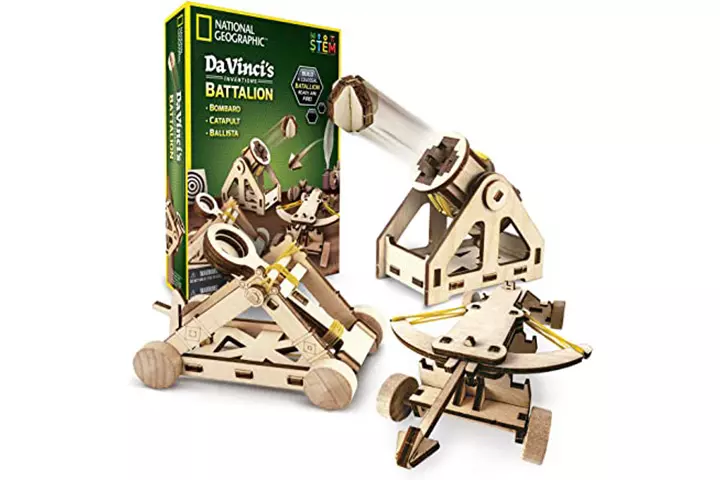
Delve into the world of Da Vinci’s inventions using the three different models in this engineering kit for kids. This fun science toy is ideal for children aged 12 and above.
Pros
- Sandpaper included for smoothing edges
- Easy to assemble using instruction manual
- Comes with parts needed for building the machines
- Projectiles can reach a distance of up to 15 feet
- 18 paper targets included for playing with projectiles
Cons
- Small parts may cause choking hazards
- Battalion firing may be flimsy
"Though its assembly is slightly tricky with some delicate parts, I find this kit is Ideal for spending quality time with my kids. It's fairly strong and is made of wood, environmentally sustainable."
15. Best Geology-Centric: 4M Crystal Growing Experimental Kit

This DIY crystal growing kit from 4M is perfect for all the young science enthusiasts out there, especially those with love for Geology. It is ideal for kids above the age of ten years. Parental supervision is advised as the content in the kit may cause choking hazards for children below three years of age.
Pros
- Instructions included for experiments
- Comes with display kit to place the crystals
- Perfect to nurture your child’s creativity
- Comes with seven crystal growth experiments
Cons
- May not grow to be as large
- Children may find the formation process a bit complicated
16. Best Crystal Treasure: National Geographic 10 Break Open Geodes
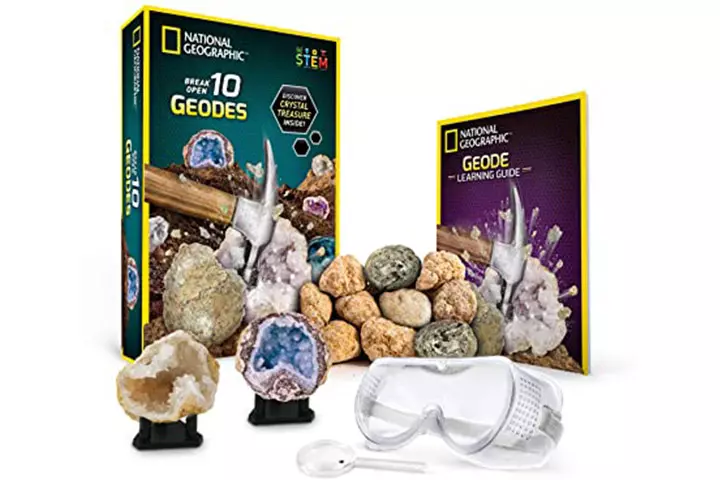
Tap into your child’s curiosity with this interesting collection of break-open geodes by National Geographic. Each of the high-quality geodes in this tested and trusted geology kit for kids can vary between one-fourth to two-fourth inches in diameter. They can be cracked open to find a variety of organic crystals inside.
Pros
- Hand-selected and 100% natural geodes
- 16-page full-color guide teaches children about geodes
- Kit contains goggles for necessary safety precautions
- Three display stands included for showcasing collection
Cons
- May require help to break open geodes
- Geodes may not open up cleanly
17. Best Fossil Discovery: National Geographic Mega Fossil Dig Kit

Nurture the little paleontologist within your child with the Mega Fossil Dig Kit from National Geographic. This kids’ science kit is perfect for Paleontology/Archaeology enthusiasts of any age. However, it isn’t recommended for kids below the age of three.
Pros
- 16-page guide about fossils included
- Comes with a complete set of digging tools
- Consists of 15 genuine fossils that are millions of years old
- Fossils can range from corals and clams to sharks and dinosaurs
- Perfect gift idea for little archeology enthusiasts
Cons
- May leave a mess while in use
- Excessive hammering may break the fossils
"It offers an educational and entertaining experience to my young children, who love to explore dinosaurs and paleontology. Though it can cause some mess when playing, I love that it encourages hours of hands-on play."
18. Best Nature Magic Learning Experience: Dan&Darci Light-up Terrarium Kit
Let your child learn the magic of nature with this light-up terrarium kit from Dan&Darci. A hands-on experiment kit for kids, it has a built-in LED light beneath the lid that helps transform the terrarium into a glow-up garden at night.
Pros
- Micro-USB charging cable for the LED lights included
- Includes soil, blue sand, and white river rocks
- Contains seeds to create the miniature garden
- Two figurines and 15 removable stickers included for decoration
- Kit has a spray bottle to water the plants
- Comes with instruction book with illustrations for assembly
- Ideal for kids of age six and above
Cons
- May develop molds
- Terrarium may be smaller than expected
19. Best Educational Planetarium: 4M Kidz Labs Solar System Planetarium
Let your child kick-start into his/her astronaut dreams with this glow in the dark planetarium kit from 4M. Caution: this astronomy kit for kids contains small parts that can cause choking hazards for kids below the age of three.
Pros
- Planets can be painted and customized
- Comes with highlights for a glow-in-the-dark effect
- Includes detailed instructions
- Ten sets of quizzes and a facts wall chart included
- Kit included stencils, rod, glow paint pen, planets, and string
Cons
- Paint may not last long
- Pieces may not line up evenly
20. Best All-In-One Science Experiment: Learn & Climb 65+ Science Experiments Kit
Learn & Climb brings you an all-in-one kit that lets your kid engage in over 60 different science experiments. This safe, all-inclusive educational science kit for kids is perfect for little ones above the age of five.
Pros
Cons
- Experiments may take up more space than expected
- Bags in the kit are not resealable
21. Best Dino-Inspired: Dan&Darci Create Your Own Dino Soap
Calling all the little dinosaur fans out there with this DIY dino soap kit from Dan&Darci. This kit is perfect for kids above the age of six.
Pros
- Soaps can be created in multiple colors
- Ensures a fun bath time
- Includes tools to create dinosaurs
- Soaps can be customized using fragrance of choice
- STEM-certified product
Cons
- Instructions may be a bit complicated
- Liquid soap may clog the mold
"This soap-making kit has offered hours of fun to my children on the weekends. It takes some time to learn how to use it, and the process is a bit messy, but the materials are long-lasting and can be used repeatedly."
22. Best Magnetic Learning: Thames & Kosmos Magnetic Science Experiment Kit
Transform those boring magnetic theories into fun and engaging experiments with Thames & Kosmos’ Magnetic Science kit. Adult supervision is recommended while using this science kit as it may contain products and chemicals that may be harmful if misused.
Pros
- Comes with 33 fun experiments
- Children can create their electromagnet
- Includes magnets of different shapes and sizes
- Compass and iron filings included to create real magnetic fields
- 48-page full-color manual included
Cons
- Pieces may be smaller than expected
- Some magnetic pieces may be slightly fragile
"It is a beautiful addition to my children�s collection of educational kits, especially given their keen interest in science. It assists them in understanding the principles of magnetism and is strong enough to withstand rough use."
23. Best Solar-Powered: Ciro 12in1 Solar Robot STEM Kit
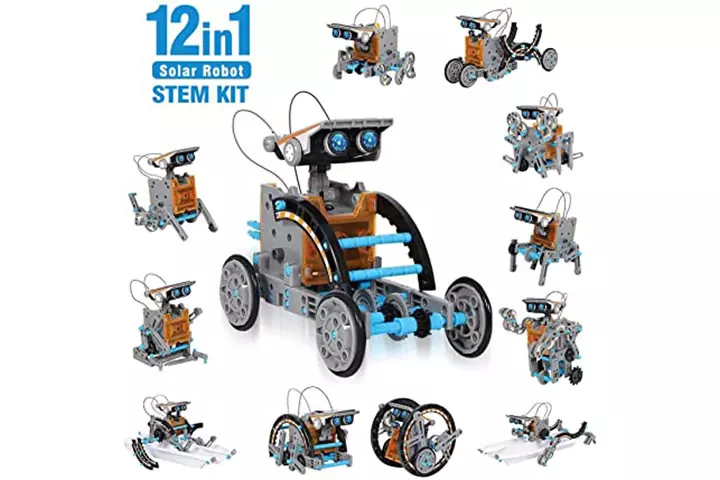
Improve your child’s hands-on ability with the solar robot kit from Ciro. A perfect kit for all the little engineering aspirants out there. This tried-and-tested STEM kit for children can provide an excellent learning experience for the ones who fall in the age group of eight to 12 years.
Pros
- Can build 12 different robots
- 190 pieces include gears, plates, and tires
- Easy assembly and disassembly
- Manual comes with detailed assembly instructions
- Can be charged to perform actions
- Enhances STEM concepts
Cons
- Pieces may not stay in place
- Robots may not move properly
"It has been an excellent find for introducing STEM concepts to my children. It offers satisfactory build options, although it requires time and close attention to detail. The solar element is fantastic, but I wish it had a battery option for rainy days."
Benefits Of Science Experiment Kits For Kids
Let’s face it, Science can get really boring in theory. How many of us have dozed off in our Physics and Chemistry classes with theories and explanations that went over our heads? Learning is fun when we get to do things practically, and the same goes for kids.
- If you are hoping to teach your kids STEM principles, then these skill-building kits do just that while making sure they have fun while learning.
- Science project kits are meant to impart knowledge in subtle and simple ways.
- And since each kit is curated for a specific age group, kids get to discover and learn different science concepts and principles that are sure to satisfy their inquisitive minds.
- They are especially beneficial for teachers as they get to explain various science concepts to their students in fun and interesting ways.
- Using these kits, kids will learn how to apply the principles they learned inside the classroom as they step out into the real world.
- It will also ignite curiosity and develop their problem-solving skills.
How To Choose Right Science Kits For Kids?
Given that there are a gazillion options for you to choose from, it can be quite overwhelming to pick the right science experiment kit for your child. However, there are a few tricks that you can use to make your work easier.
- Look for kits that focus on a particular yet exciting field of science. While certain kits focus on human anatomy, others teach them about chemical reactions.
- Kits can range from simple to sophisticated based on mainly two factors: price and age group.
- It’s best to go for kits that are fully equipped with all the items necessary to conduct the experiment unless it requires easily available household materials.
- Most experiment kits will have a detailed instruction manual or a step-by-step guide to help you navigate through the experiment.
- Another factor that comes into play is looking for products that are designed for a specific age group. You don’t want to get your child that is either too simple or too complex for their age.
Frequently Asked Questions
1. Are science kits safe for children?
Most science discovery kits for kids are designed to let children learn essential concepts in a fun manner. If the kit is difficult to handle, has sharp edges, or contains chemicals, parental supervision can ensure a safe learning experience.
2. Are science kits worth it?
Science kits facilitate hands-on experiments and learning for the child, thus making learning interesting, engaging, and meaningful for your little one. These kits are also STEM-based.
3. Do science kits help with child development?
Playing with science kits can offer these benefits (1).
- Understanding different scientific fields and concepts with clarity
- Retaining knowledge
- Enhancing imagination
- Instilling scientific curiosity
- Facilitating the practical application of theoretical knowledge
4. How long does a science kit last?
Science kits generally last as long as their raw materials or ingredients are available to conduct the experiments. Since the quantity of the raw materials varies from experiment to experiment, each kit lasts for a different period.
5. For what age group are science kits suitable?
Most kids’ science kits are ideal for children aged between eight and 12 years. Since the age recommendation can vary across kits, go through the product details provided by the manufacturer.
Why Trust MomJunction?
Priti Bose is passionate about finding the best toys and gifts for kids. She has curated this well-researched list of the best science kits for kids based on user reviews and product features to help your child have a productive play session that stimulates their scientific mind. She has also mentioned the benefits of science experiment kits for kids and how to choose the right one.
The Bottom Line
One of the most remarkable ways of nurturing your child’s curiosity and getting them to experiment with thought processes is by gifting them the best science kits for kids. These entertaining table games stimulate their creativity and critical thinking skills, so your little one can develop a scientific approach to life and pursue their interest in STEM subjects when they grow up. Our favorite picks from the list are the Scientific Explorer My First Mind Blowing Science by Alex Toys to introduce STEM concepts through engaging experiments, the National Geographic Da Vinci’s Inventions Battalion featuring three models, projectiles, and paper targets, and the National Geographic Mega Fossil Dig Kit for hands-on paleontology fun. Before buying, consider your child’s interests and age group so they can find the games and experiments engaging but not too challenging.
Infographic: How To Introduce And Support Science Education From A Young Age?
Introducing science concepts from a young age can help make a child more curious and independent. The problem-solving skills learned from the early introduction of science will be carried with them to adulthood. Follow the infographic to know how you can introduce and support your child’s science education. Illustration: Momjunction Design Team
References
- C-More Science Kits As A Classroom Learning Tool:
https://www.researchgate.net/publication/279533038_C-MORE_science_kits_as_a_classroom_learning_tool
Community Experiences
Join the conversation and become a part of our nurturing community! Share your stories, experiences, and insights to connect with fellow parents.
Read full bio of Jennifer Stalley
Read full bio of Pratibha Bagdy
Read full bio of Poulami Nag
Read full bio of Trisha Chakraborty






